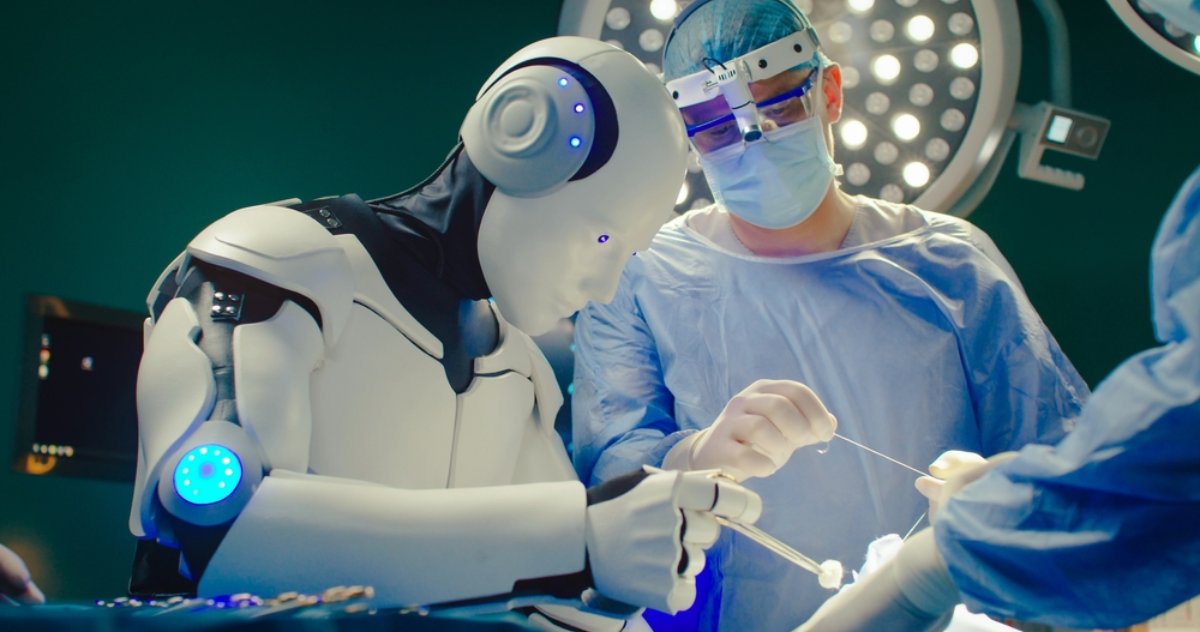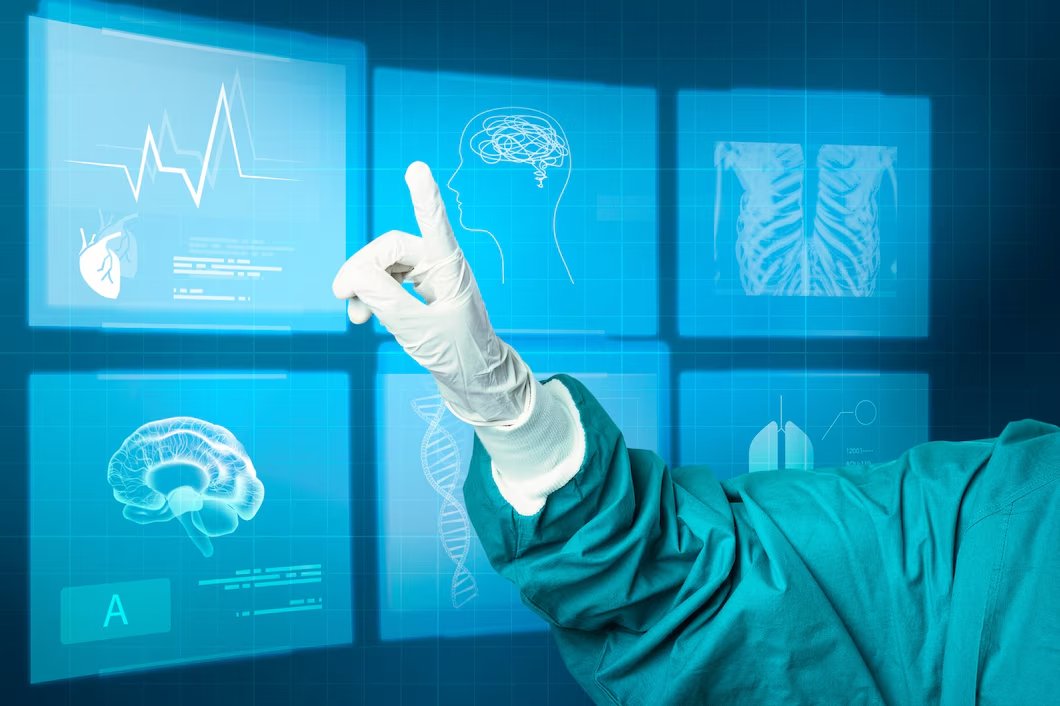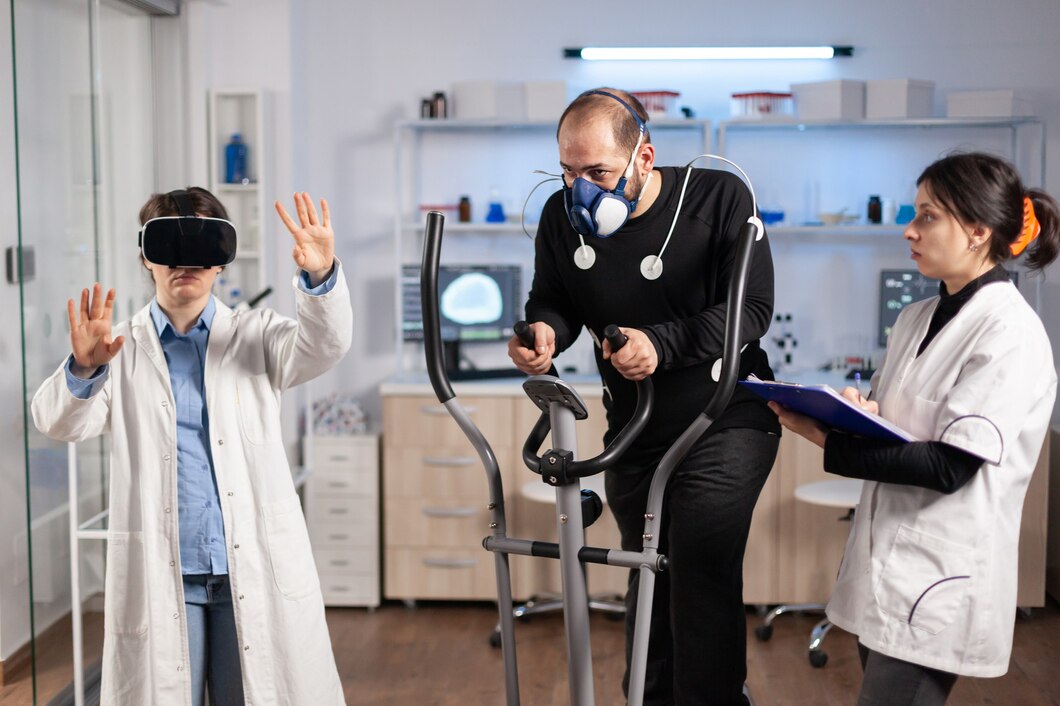How AI is Enhancing Healthcare & Diagnosis
Artificial Intelligence (AI) is transforming the healthcare industry, improving the accuracy of diagnostics, the efficiency of treatment strategies, and patient outcomes. AI diagnosis tools and machine learning allow medical professionals to diagnose diseases much earlier and tailor treatments/protocols to each individual. This article examines the evolving role of AI in contemporary healthcare, the advantages it brings, and the

Artificial Intelligence (AI) is transforming the healthcare industry, improving the accuracy of diagnostics, the efficiency of treatment strategies, and patient outcomes. AI diagnosis tools and machine learning allow medical professionals to diagnose diseases much earlier and tailor treatments/protocols to each individual. This article examines the evolving role of AI in contemporary healthcare, the advantages it brings, and the ethical considerations it entails.
The Role of AI in Modern Healthcare

AI is being adopted in various aspects of healthcare, from diagnosing diseases to automating hospital operations. By analysing vast amounts of medical data, AI-powered systems can identify patterns and provide insights that aid healthcare professionals in making informed decisions.
AI-Powered Diagnostics
One of the most significant breakthroughs in AI in healthcare is its ability to enhance medical diagnostics. AI-driven tools help detect diseases early, improving patient prognosis and reducing mortality rates.
- Medical Imaging: AI-powered software analyses X-rays, MRIs, and CT scans with high accuracy, assisting radiologists in identifying abnormalities such as tumours and fractures.
- Pathology Detection: AI algorithms examine biopsy samples to detect cancers and other diseases more efficiently than traditional methods.
- Early Disease Detection: AI models analyse patient history and genetic data to predict the likelihood of diseases such as diabetes, Alzheimer’s, and cardiovascular conditions.
- Ophthalmology and Dermatology: AI tools assist in identifying conditions like diabetic retinopathy and melanoma by analysing retinal scans and skin lesion images with high precision.
AI in Personalised Treatment
AI enables personalised treatment plans by considering a patient’s medical history, lifestyle, and genetic profile. This approach enhances the effectiveness of treatment and reduces potential side effects.
- Drug Development: AI accelerates the discovery of new drugs by analysing molecular interactions and predicting potential side effects, significantly reducing research and development time.
- Precision Medicine: AI tailors treatments to individuals based on their genetic makeup, leading to better outcomes for patients with complex conditions such as cancer and autoimmune diseases.
- AI-Assisted Surgery: AI-powered robotic surgical systems enhance procedure precision, reducing recovery times and surgical complications. Systems like the Da Vinci Surgical System allow for minimally invasive surgeries with improved accuracy.
- Wearable Health Tech: AI-driven wearables, such as smartwatches and fitness bands, monitor heart rates, oxygen levels, and sleep patterns, helping early detection of health conditions like atrial fibrillation and hypertension.
AI Diagnosis Tools and Their Impact
AI diagnosis tools transform how medical conditions are detected and managed, making healthcare more accessible and efficient.
Chatbots and Virtual Health Assistants
AI-driven chatbots assist patients in self-diagnosing symptoms and guiding them to the appropriate medical care.
- Symptom Checkers: AI-powered apps like Ada and Buoy Health provide users with probable diagnoses based on symptom input, reducing unnecessary hospital visits.
- Mental Health Support: AI chatbots such as Woebot offer cognitive behavioural therapy (CBT) techniques to help manage anxiety and depression, making mental health support more accessible.
- Remote Patient Monitoring: AI-powered devices track vital signs and notify healthcare providers of any concerning changes, allowing for proactive intervention in chronic disease management.
AI in Electronic Health Records (EHR)
AI optimises the management of electronic health records, reducing administrative burdens and improving patient care.
- Automated Documentation: AI-powered speech recognition tools transcribe doctor-patient interactions, reducing paperwork and allowing doctors to focus on patient care.
- Predictive Analytics: AI analyses patient data to identify high-risk individuals and suggest preventive measures, helping hospitals allocate resources more efficiently.
- Interoperability: AI facilitates seamless data sharing between different healthcare systems, improving care coordination and reducing errors in patient treatment plans.
The Benefits of AI in Healthcare

Increased Efficiency and Reduced Costs
AI automates repetitive tasks, allowing healthcare professionals to focus on critical patient care. By reducing errors and improving diagnostic accuracy, AI contributes to cost savings for healthcare providers and patients.
- Faster Diagnoses: AI can process thousands of medical images in a fraction of the time it takes human radiologists, enabling quicker and more accurate diagnoses.
- Optimised Hospital Workflows: AI-driven scheduling systems reduce patient wait times and optimise resource allocation, ensuring hospitals run efficiently.
- Reduced Medical Errors: AI algorithms minimise the likelihood of misdiagnosis and prescription errors, minimising risks to patient safety.
Enhanced Accessibility
AI-powered tools bring healthcare solutions to remote and underserved areas. Powered by AI, telemedicine enables consultations without geographical constraints, ensuring patients receive timely medical advice.
- Telehealth Advancements: AI-powered virtual consultations help doctors assess patients remotely, making healthcare more accessible in rural areas.
- Language Translation: AI-driven translation tools break down language barriers, allowing healthcare providers to communicate with patients from diverse linguistic backgrounds.
- Mobile Health Apps: AI-integrated mobile applications provide real-time health monitoring, enabling individuals to manage their conditions effectively.
Improved Patient Outcomes
AI’s ability to detect diseases early and personalise treatments allows patients to experience better health outcomes and reduced hospitalisation rates.
- Preventive Healthcare: AI analytics predict potential health risks and suggest preventive measures, helping individuals avoid serious illnesses.
- Enhanced Rehabilitation Support: AI-powered rehabilitation programs assist patients recovering from strokes, injuries, and surgeries by providing adaptive exercise plans and virtual coaching.
- Real-Time Decision Support: AI systems assist doctors in making real-time treatment decisions by providing data-driven recommendations based on patient-specific factors.
Ethical and Regulatory Considerations in Medical AI

Data Privacy and Security
AI relies on vast amounts of patient data, raising concerns about confidentiality and security. Regulations such as GDPR in Europe and HIPAA in the US protect patient information.
- Encryption Technologies: AI-driven cybersecurity measures protect patient records from data breaches and cyber threats.
- Consent and Transparency: AI developers must ensure patients are informed about their data use and obtain explicit consent before processing personal health information.
Bias in AI Algorithms
AI models can inherit biases from the data they train on, leading to disparities in diagnosis and treatment. Efforts are made to develop fair and unbiased AI systems.
- Diverse Training Data: AI developers must use diverse and representative datasets to ensure accuracy across different demographics.
- Algorithm Audits: Regular reviews and updates of AI models help identify and eliminate potential biases in healthcare decision-making.
The Human-AI Collaboration
AI should be seen as a tool to assist medical professionals rather than replace them. Ensuring that AI complements human expertise is crucial for ethical AI integration in healthcare.
- Augmented Intelligence: AI supports, rather than replaces, healthcare professionals by enhancing decision-making capabilities.
- Ethical AI Implementation: Policymakers and healthcare providers must establish guidelines to ensure AI’s use is responsible and done transparently.
Preparing for the Future of AI in Healthcare
Investment in AI Training and Research
Healthcare institutions must invest in AI training programs to educate medical professionals on AI applications and limitations.
- AI Literacy Programs: Training healthcare staff on AI-driven tools ensures effective implementation and maximises benefits.
- Research Funding: Increased investment in AI research leads to groundbreaking disease detection and treatment innovations.
Adoption of AI-Powered Solutions
Hospitals and clinics should integrate AI-powered tools into their workflows to enhance efficiency and improve patient outcomes.
Regulatory Frameworks and Ethical Guidelines
Governments and organisations must establish clear regulations to guide the responsible use of AI in healthcare.
Conclusion: The Future of AI in Healthcare
Artificial Intelligence in Healthcare AI is revolutionising healthcare with improvements in diagnostic accuracy and personalisation in treatments, enhancing how we care for patients. With the fast-paced evolution of technology, the role of AI will further enhance medical decision-making in disease prevention and improve the healthcare system’s overall efficiency. Despite challenges like data privacy and algorithmic bias, a partnership between AI and medical professionals can guarantee AI’s ethical and effective integration into medical systems.